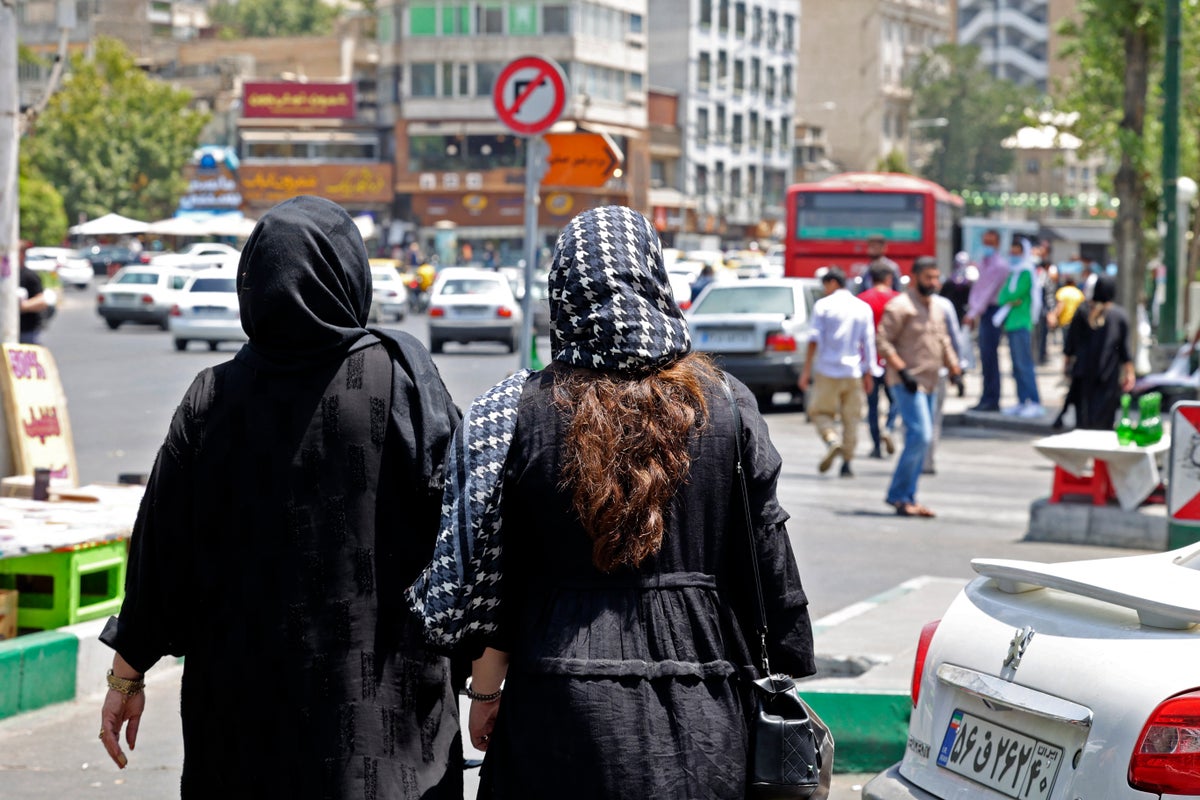
The family of Iranian actor Nazanin Bahrami says she has been arrested by undercover police officers in the country’s capital Tehran after she signed a statement hitting out at sexual abuse within her industry.
Ms Bahrami was just one of 800 women who recently signed a statement condemning sexual harassment and violence against women in the film industry in Iran.
The actor’s relatives say Ms Bahrami was detained after undercover police officers approached her while she was coming home from work and they have no idea where she is currently located,Radio Free Europe Radio Liberty reported.
Iranian authorities have yet to publicly release a statement on Bahrami’s case.
Women’s rights are stringently restricted in Iran and wearing a headscarf is compulsory in public for all women, with those who do not wear a hijab, or have some of their hair on display while wearing a hijab, facing punishments ranging from fines to imprisonment.
Ms Bahrami’s apparent arrest comes in the context of the Islamic Republic staging an operation to force women to wear the hijab – labelling women, many of whom are young, who infringe the rules as “bad-hijab”.
The “morality police” have been arresting women in the crackdown, with reports that some officials have demanded public transport workers, staff in government offices, and banks not provide service to the so-called “bad-hijab” women. Medical settings and universities in some Iranian cities have been monitored by the “morality police” to ensure women are keeping their heads covered.
Masih Alinejad, an Iranian-American journalist and women’s rights activist, told The Independent: “The irony in the Islamic Republic of Iran is that although the entire system is purportedly protective of women in the words of the officials, many Iranian women in various industries have been facing sexual abuse by people connected to the regime.
“These women are often intimidated into silence. Some like Reyhaneh Jabari have even been executed. Rayhaneh, an interior designer, had faced raped by an official of the Islamic republic of Iran.”
“When she resisted her rapist, she ended up being executed. In Iran, laws are geared to punish Iranian women seeking justice against sexual assault,” she said.
Reyhaneh Jabari, who was 26, was hanged in the Rajaie Shahr prison outside Tehran in 2014 for allegedly killing a man whom she alleged was trying to rape her. Prominent human rights organisations, including Amnesty International, called for Jabari not to be subjected to the death penalty.
Jabbari was arrested in 2007 for the murder of Morteza Abdolali Sarbandi, who was an ex-intelligence ministry worker. She claimed she stabbed Sarbandi in the back because he was attempting to rape her but insisted he was in fact killed by another individual.







